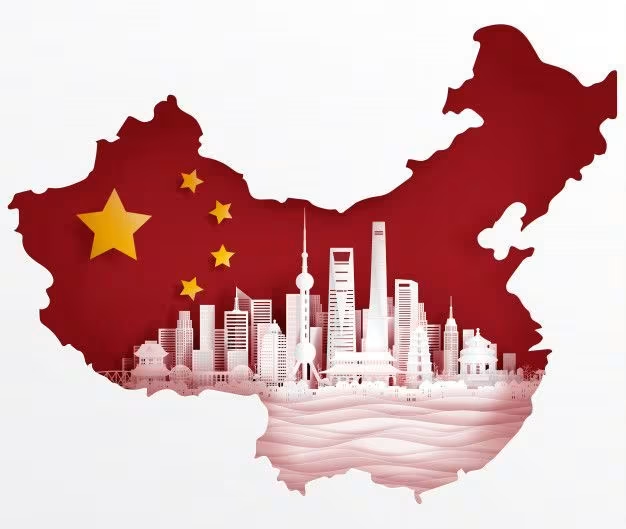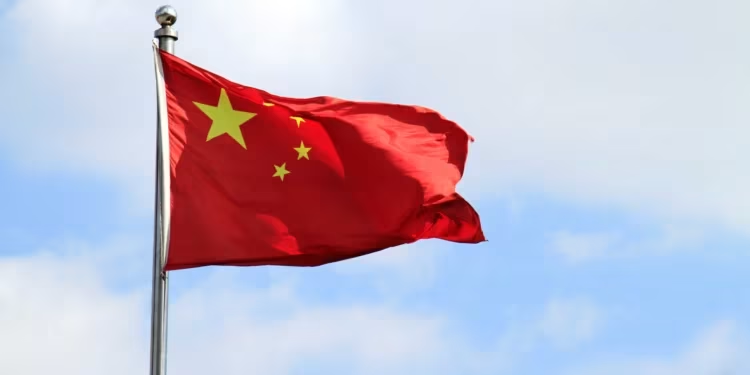China’s Exports to Africa Surge Past $122 Billion in 2025, with Nigeria as a Key Driver.
Africa is rapidly becoming a major growth engine for Chinese exports, as trade between the two regions skyrockets in 2025. Led by significant demand from economic powerhouses like Nigeria, South Africa, and Egypt, this surge is reshaping Beijing’s global trade strategy, particularly in response to ongoing U.S. tariffs.

According to a recent Bloomberg report, Chinese exports to the African continent have jumped an astonishing 25% year-on-year, reaching $122 billion so far in 2025. This figure has already eclipsed the entire trade volume between Africa and China for the year 2020 and is on a firm trajectory to cross the $200 billion mark for the first time ever.
Nigeria: A Critical Hub for Chinese Imports
Nigeria has solidified its position as a top destination for Chinese goods. Data from the National Bureau of Statistics (NBS) for the first quarter of 2025 reveals that China was Nigeria’s largest source of imports.
Imports from China (Q1 2025): Nigerian imports from China totaled ₦4.66 trillion.
Share of Total Imports: This accounts for a significant 30.19% of Nigeria’s total imports during the period.
Quarterly Fluctuation: This figure represents a decrease from the ₦14.14 trillion recorded in the fourth quarter of 2024, indicating potential shifts in trade cycles or economic conditions.
What is China Exporting to Africa?
The boom in exports is concentrated in sectors crucial for Africa’s development. Key growth areas in the first seven months of 2025 include:
Construction Machinery: Surged by 63% year-on-year, fueling infrastructure projects across the continent.
Passenger Cars: Shipments more than doubled as consumer markets expand.
Steel Products: Exports grew in the high double digits.
Solar Panels: In the 12 months leading up to June, imports of Chinese solar panels climbed by 60%, according to climate think tank Ember, addressing Africa’s energy needs.
Despite this impressive growth, Africa’s share of China’s total global exports remains modest at approximately 6%, about half the level of exports to the United States.

Factors Fueling the China-Africa Trade Shift
Several geopolitical and economic factors are driving this pivot towards an Eastern-focused trade relationship.
U.S.-China Trade Tensions: The escalating trade war has compelled Chinese manufacturers to actively seek new, reliable markets for their goods, with Africa emerging as a prime destination. Some analysts suggest goods may even be diverted through Africa to other markets, a practice known as transshipment.
The Belt and Road Initiative (BRI): Launched by President Xi Jinping in 2013, the BRI has laid the groundwork for this trade explosion. In the first half of 2025 alone, African nations signed $30.5 billion in construction contracts with China, a five-fold increase from the same period last year.
Contrasting Trade Policies: While the U.S. has imposed tariffs on goods from over 30 African nations under the African Growth and Opportunity Act (AGOA), China is moving in the opposite direction. President Xi has announced the removal of levies on imports from all African nations with which it holds diplomatic ties, and has recently granted market access for agricultural products to 19 African countries.
What You Should Know
This trend underscores a significant strategic realignment in global trade. Africa is increasingly looking to Eastern markets like China and India for its economic partnerships. This shift is driven by a combination of:
Competitive Pricing: Chinese goods are often more affordable for African markets.
Availability of Goods: China provides a vast range of consumer and industrial products.
Flexible Financial Terms: Chinese entities often provide credit facilities and investment for major projects.

Geopolitical Alignment: As Western protectionism rises, Africa is finding a more welcoming trade partner in Beijing, ready to invest in the continent’s infrastructure and industrial capacity.
Join Our Social Media Channels:
WhatsApp: NaijaEyes
Facebook: NaijaEyes
Twitter: NaijaEyes
Instagram: NaijaEyes
TikTok: NaijaEyes




